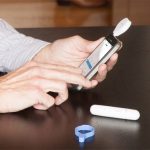Amplifying the Patient Voice in Clinical Research Technology Development – Mike Cioffi

Author: Mike Cioffi, Senior Vice President, Clinical Solutions and Strategic Development, WCG
For those of us who use sophisticated digital tools every day, it’s easy to assume that technology always makes life easier. It doesn’t.
For many people, technology can make life harder. Study eDiaries are an example of a clinical research technology that can create additional burdens. Yes, they have improved the accuracy and efficiency of data collection. However, for some, they can be more difficult to use than paper logbooks. As researchers, we must ask for patient feedback to better understand the ease of use of such patient technologies.
By harnessing patient insights on clinical research technology, data accuracy can be improved, the clinical trial process can be streamlined, and the burden on participants and sites can be reduced. Researchers must seek insights from the people who are the end users of these tools.
Provisioned Device vs. Bring Your Own Device (BYOD)
Despite all their advantages, eDiaries can introduce new obstacles. When provisioned devices are utilized to track electronic patient reported outcomes (ePRO), some participants may have never used a smartphone. A lifelong Apple user may struggle with an Android-based platform. For some participants, keeping track of yet another device can be frustrating.
Allowing participants to use their own devices may mitigate some of these issues, but BYOD only accounts for about 30% of study participants in a given study (excluding vaccine studies). And keep in mind that not everyone owns a suitable device.
Additionally, participants with cognitive limitations may not be able to navigate the eDiary platform, and even people without cognitive issues may struggle with complex assessments.
All of this can result in frustrated participants and inaccurate and/or incomplete data.
Incorporating the Participant Voice
Patients need to be involved in developing ePRO assessments from the outset, especially for endpoints without existing standards or scales. Ideally, sponsors would solicit patient insight early in endpoint development. Too often, however, study startup timelines take precedence over patient input.
Participants typically don’t get to offer their perspective until cognitive debriefing and usability testing, which involve interpreting and responding to questions about the functionality of the assessment. These steps are essential, but they shouldn’t be the first-time patients are involved. Bringing in the patient voice too late results in missed opportunities for creating more relevant and effective tools.
One way to ensure the patient voice is being captured is to cultivate relationships with patient advocacy groups related to the therapeutic indication of the study. We’ve found that these individuals are very enthusiastic about participating. They can help tailor the endpoints, assessments and technology to the needs of the relevant patient population. Engaging with advocacy groups can also drive patient participation in trials.
Other things to consider:
• Is a particular measure overly burdensome on the participant? Participants can identify potential difficulties or barriers that may hinder the proper use of ePRO/eCOA tools. Based on the feedback, you may decide to prioritize must-have versus nice-to-have endpoints in your protocol.
• Do the questions get to the core of what is meaningful to patients? Patients can tell you whether a question captures what is truly relevant to their experiences.
• Does the technology account for the needs of the patients who will use it? You may need to adjust for visual, hearing and cognitive issues, as well as for literacy and technology experience.
• Case Study: Development of Patient Seizure eDiary
Challenge
In late-phase epilepsy trials, sponsors need to collect a large amount of data directly from participants. Often, traditional seizure diaries, both paper-based and electronic, fail to meet the needs of both sponsors and participants. They can be inflexible, difficult to use, and inadequate for capturing seizure activity. In this case, this resulted in poor data quality and structure. Additionally, on the back end, the database didn’t allow for proper analysis to satisfy regulators.
Solution
The Epilepsy Study Consortium collaborated with industry leaders, including WCG, study coordinators, data managers, sponsors, and participants to create a better electronic seizure diary. During the course of diary development, WCG conducted multiple patient focus groups to gather direct feedback on diary features and layout.
Outcomes
A participant-centric Seizure eDiary was developed that works across many possible scenarios that are presented in trials that measure seizure activity.
- Standardized data coding: It allows for consistent data input and coding in the backend database, enabling the type of analysis previously unavailable.
- Improved data accuracy: Site-based workflows facilitate the creation of participant-specific seizure descriptions, leading to better data accuracy and simplified review and classification of potential new seizure activity.
- Easy reclassification and adjudication: Sites can complete reclassifications without vendor support, and seizure types can be adjudicated directly within the diary, streamlining the adjudication process.
- Enhanced patient experience: The seizure eDiary enables patients to record information more quickly and accurately than paper diaries. It also allows them to log seizures, track medications, and appointments, and receive customized content on their condition.
A Matter of Priorities
To become truly participant-centric, we must, as an industry, prioritize patient needs in the development of protocols, endpoints, assessment tools, and technology.





